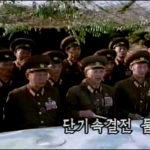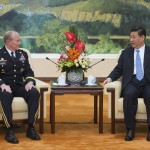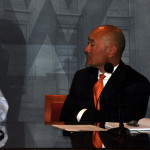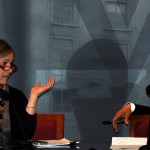
In this report, Peter Hayes and Roger Cavazos “examine one North Korean account of the limited war it might fight to occupy Seoul, including the use of nuclear weapons or other unspecified WMD to neutralize American forces. We find that while this account makes for fine propaganda, when viewed through the lens of conventional capabilities, the plan is mainly smoke and mirrors. Nonetheless, if this account is indicative of the belief system of North Korea’s leadership, then it is truly alarming. It suggests that North Korea still adheres to military strategies and tactics that failed in the Korean War, and would fail again, only faster, should war break out in Korea. Moreover, it suggests a fantastic belief that somehow early escalation to nuclear war could make possible a conventional pre-emptive attack on Seoul.”
Peter Hayes is director of Nautilus Institute and Professor of International Relations at RMIT University in Melbourne. Roger Cavazos is an Associate of Nautilus Institute and retired US military intelligence officer.







